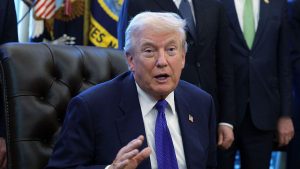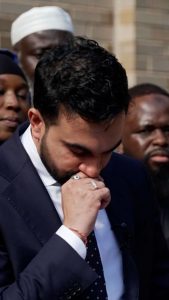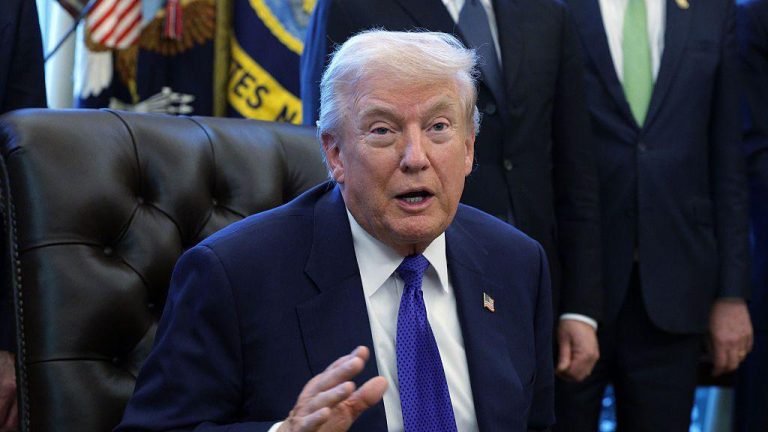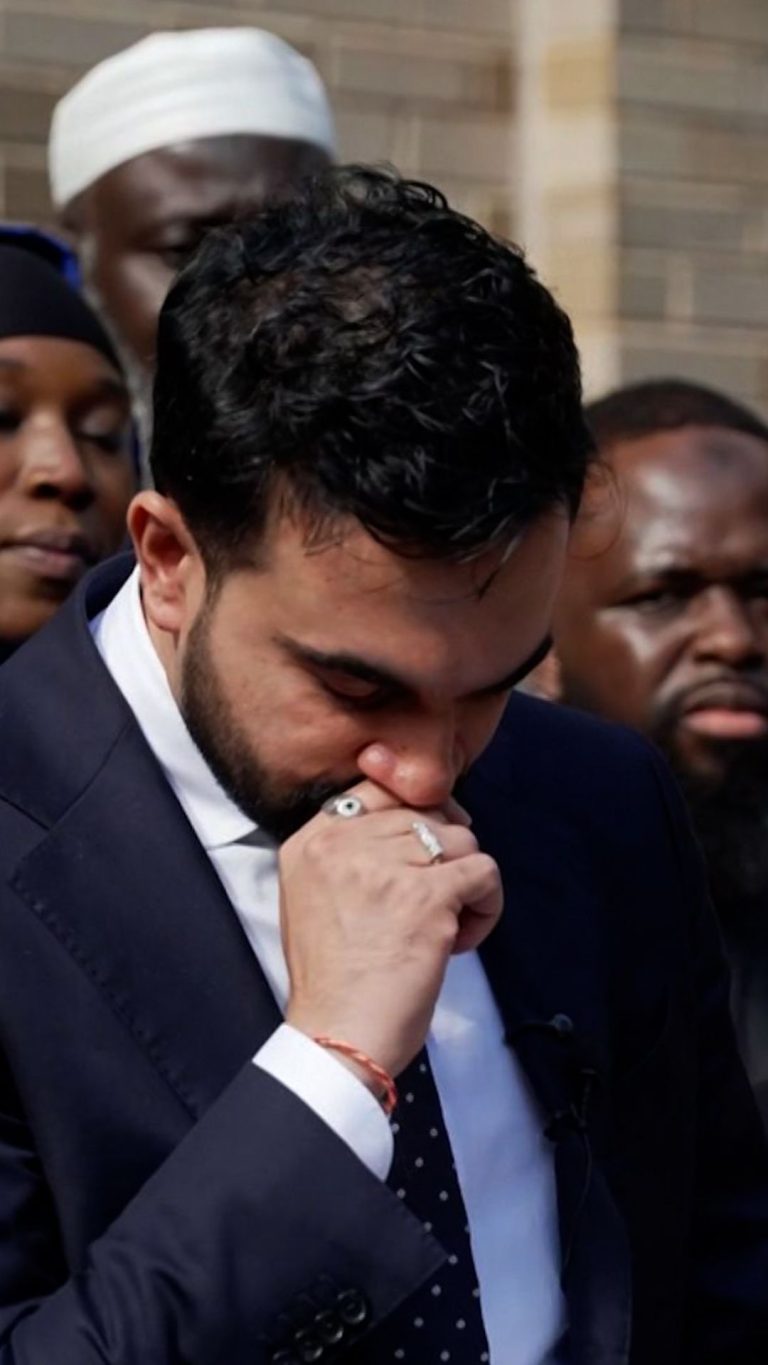Harrison Ford has delivered one of his most pointed critiques of the Trump administration to date, voicing deep concern over the government’s approach to climate change. The Hollywood icon, best known for his roles as Indiana Jones and Han Solo, did not hold back in a wide-ranging interview, expressing alarm at what he described as the administration’s disregard for scientific realities and environmental responsibility.
The 83-year-old actor, who has served as the inaugural vice-chair of Conservation International since 1991, has long used his platform to promote environmental awareness. From speaking at the United Nations Climate Action Summit in New York to supporting environmental initiatives through EarthShare, Ford has consistently encouraged public involvement in conservation efforts. A lifelong Democrat, Ford has also actively engaged in political advocacy, lending his support to both Joe Biden’s 2020 presidential campaign and Kamala Harris’ 2024 bid. He has previously collaborated with anti-Trump Republican group The Lincoln Project, narrating an election ad alongside Mark Hamill.
In his latest interview with The Guardian, Ford expressed bluntly that the Trump administration “scares the s**t out of me” due to its stance on climate change. The veteran actor argued that the current president lacks coherent policies, instead operating on whims that jeopardize the environment.
“The ignorance, the hubris, the lies, the perfidy,” Ford said. “He knows better, but he’s an instrument of the status quo, and he’s making money, hand over fist, while the world goes to hell in a handbasket. It’s unbelievable. I don’t know of a greater criminal in history.”
Ford’s criticism underscores a long-standing concern among scientists and activists about the rollback of environmental regulations and the promotion of traditional energy sources at the expense of sustainable alternatives. For the actor, the consequences are not theoretical; he believes that decades of climate science warnings have proven accurate.
“Everything scientists have been saying over the last thirty years has come true,” Ford said. “Why is it not sufficient that it alarms people enough to change behaviors? Because of the entrenched status quo. He’s losing ground because everything he says is a lie.”
Despite the harshness of his statements, Ford emphasized that he remains optimistic about humanity’s ability to respond to climate threats. He highlighted the potential for innovation and behavioral change if society develops the political will and intellectual capacity to act.
“We are incredibly adaptive, we are incredibly inventive. If we concentrate on a problem, we can fix it most times,” he noted. “But we have to develop the political will and intellectual sophistication to realize that we human beings are capable of change.”
Ford’s comments come just weeks after former President Donald Trump addressed the United Nations, dismissing concerns over climate change as the “greatest con job ever perpetrated on the world.” Trump went on to warn that nations that do not abandon environmental initiatives will fail, and he promoted strong borders and reliance on traditional energy sources as key to national success. Ford’s remarks serve as a stark counterpoint to that narrative, emphasizing urgency, responsibility, and the need for proactive solutions.
Earlier this week, Ford was recognized for his lifelong conservation efforts at the Chicago Field Museum gala. During the event, he recounted a formative experience from his youth that sparked his enduring connection to nature.
“I looked and there he was, ten feet away, a red fox, totally quiet, not moving, staring right at me,” Ford said. “The fox left, and I walked away. I discovered a connection to nature. I knew I was part of nature.”
That early encounter, Ford explained, cemented his commitment to protecting the natural world. He has carried that mission through decades of advocacy, using his fame to highlight urgent environmental challenges and promote actionable change.
Ford’s latest interview is likely to reignite discussions about climate policy and the Trump administration’s environmental record. By framing the stakes in starkly moral and existential terms, the actor reinforces the urgency felt by scientists, activists, and concerned citizens alike.
“The world is going to hell in a handbasket,” Ford said, summarizing his concern with blunt candor. “But we can do something about it if we act decisively and collectively.”
As the climate crisis continues to dominate public discourse, voices like Ford’s—combining celebrity influence with decades of environmental advocacy—may play a pivotal role in shaping public opinion and political priorities. His warnings serve as both a condemnation of current policies and a call to action, urging society to recognize the seriousness of the threat and the potential for meaningful change.
Ford’s statements also underscore a broader pattern of high-profile figures using their platforms to advocate for science-based policy. From Hollywood actors to scientists and activists, many are emphasizing that ignoring climate change is not merely a policy disagreement but a tangible threat to the future of the planet.
By juxtaposing Trump’s inaction and skepticism with decades of scientific warnings, Ford frames the issue in stark terms, calling for immediate attention and systemic reform. His language—unapologetically frank and at times shocking—reflects the gravity of the crisis as he sees it.
In doing so, Ford aligns himself with a growing coalition of environmental leaders, policymakers, and concerned citizens demanding accountability. While the political landscape remains deeply divided, voices like his underscore the moral and practical imperative of addressing climate change before it’s too late.
As Ford noted, humanity has proven capable of ingenuity and adaptation. The challenge, he argued, is not the absence of solutions but the absence of the collective will to implement them. With global temperatures rising, extreme weather events increasing, and biodiversity declining, the time for decisive action is now.
Ford’s advocacy also illustrates how personal experience can fuel lifelong commitment. That childhood encounter with a red fox may seem small, but it clearly shaped a worldview grounded in respect for the natural world—a worldview that continues to guide his public statements and activism today.
In the coming months, as climate debates intensify and political campaigns ramp up, Ford’s comments are likely to resonate with both supporters and critics. His unflinching critique of the Trump administration, coupled with a steadfast commitment to environmental action, positions him as one of the most prominent celebrity voices in the fight against climate change.
Whether his words will translate into concrete policy changes remains uncertain, but they add to the growing chorus of warnings from scientists, activists, and leaders urging immediate action. For Ford, the stakes are clear: failure to address climate change threatens not only ecosystems and wildlife but the future of humanity itself.
In sum, Harrison Ford’s scathing critique of the Trump administration serves as a stark reminder of the urgency surrounding climate issues. While acknowledging the entrenched obstacles, he maintains faith in human adaptability and ingenuity, encouraging citizens and leaders alike to act decisively. His message is simple but powerful: the world is at a crossroads, and it is up to society to choose a path toward sustainability and preservation—or risk catastrophic consequences.
Ford’s words, delivered with characteristic passion and gravitas, reinforce the message that climate change is not a distant problem but an immediate challenge that demands bold action from both policymakers and the public. His warnings, drawn from decades of advocacy and personal experience, may well inspire renewed urgency in the ongoing fight to protect the planet for future generations.

Emily Johnson is a critically acclaimed essayist and novelist known for her thought-provoking works centered on feminism, women’s rights, and modern relationships. Born and raised in Portland, Oregon, Emily grew up with a deep love of books, often spending her afternoons at her local library. She went on to study literature and gender studies at UCLA, where she became deeply involved in activism and began publishing essays in campus journals. Her debut essay collection, Voices Unbound, struck a chord with readers nationwide for its fearless exploration of gender dynamics, identity, and the challenges faced by women in contemporary society. Emily later transitioned into fiction, writing novels that balance compelling storytelling with social commentary. Her protagonists are often strong, multidimensional women navigating love, ambition, and the struggles of everyday life, making her a favorite among readers who crave authentic, relatable narratives. Critics praise her ability to merge personal intimacy with universal themes. Off the page, Emily is an advocate for women in publishing, leading workshops that encourage young female writers to embrace their voices. She lives in Seattle with her partner and two rescue cats, where she continues to write, teach, and inspire a new generation of storytellers.









